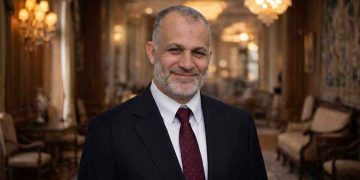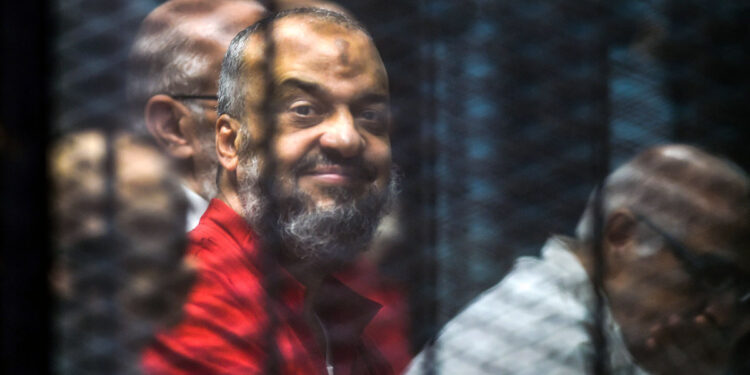Egyptian authorities continue to pursue a policy of systematic repression against political detainees, subjecting them to deliberate medical neglect and inhumane conditions that have led to the severe deterioration of many prisoners’ health.
In this context, Mrs Sanaa Abdel-Gawad, the wife of political opposition figure Dr Mohamed El-Beltagy, stated that her husband has been unjustly detained for 12 years. She explained that “he entered prison in full health, but his condition has drastically worsened as a result of being denied exercise, sunlight, family visits, and medical care, in addition to a three-month total hunger strike.” She added that he is now unable to move and relies on a wheelchair.
In a post on her Facebook account, she wrote: “Do we not have the right to know how he is? Do we not have the right to receive a letter or a phone call, as guaranteed by law? The bigger question is — why is he imprisoned at all?” She called for his release, along with that of their son Anas and the thousands of other detainees held for political reasons.
Egyptian law — most notably the Prisons Regulation Law — guarantees prisoners’ rights to medical care, physical exercise, and family visits, as inalienable rights under all circumstances. The Egyptian Constitution further stipulates that “dignity is a right for every human being” and that “anyone who is arrested or detained must be treated in a manner that preserves their human dignity.”
Internationally, the UN Standard Minimum Rules for the Treatment of Prisoners (the Nelson Mandela Rules) affirm that every detainee has the right to the same standard of health care available in the community, and that regular medical supervision must be provided — particularly for those with chronic conditions and for elderly prisoners.
However, according to testimonies from detainees’ families, conditions in Egyptian prisons reveal a severe lack of medical services and persistent restrictions on visits and communication, raising serious concerns about compliance with both domestic and international standards.
Dr El-Beltagy’s case underscores the urgent need to adopt humanitarian or conditional release measures for prisoners suffering from serious illnesses or deteriorating health conditions. Both national legislation and international conventions empower authorities to release detainees whose continued imprisonment endangers their lives, recognising that the right to life and medical care must take precedence over political or security considerations.
The ongoing deterioration of detention conditions in Egypt demands a comprehensive review of prison and healthcare policies. It is essential to reaffirm that human dignity cannot be forfeited by the passage of time or stripped away because of political opinion or affiliation.


























